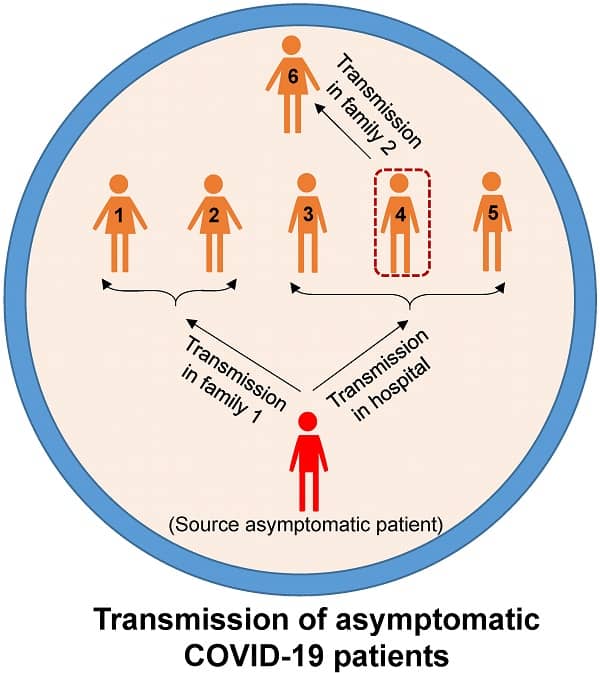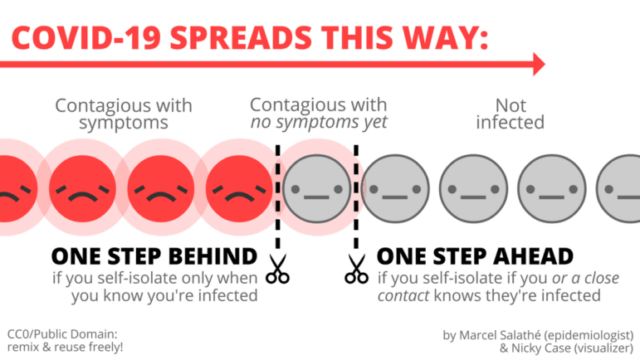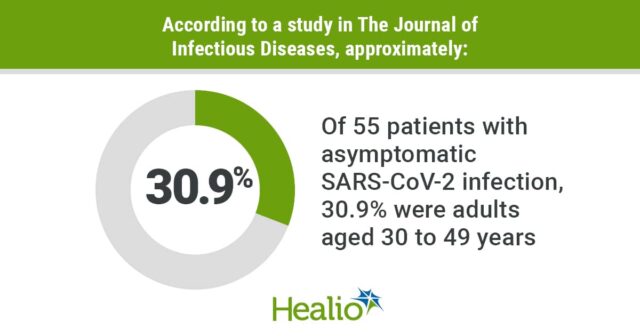The country is under the control of COVID-19’s third wave. Because of its widespread distribution, the novel variant Omicron has resulted in an increase in cases. Over the previous few weeks, there has been a significant increase in the number of infections.
In the previous eight days, India has reported a 6.3-fold increase in COVID-19 instances, according to the authorities. While the health ministry is taking all precautions to ensure the residents’ safety, asymptomatic COVID instances continue to be an issue.
Who Are Asymptomatic COVID Carriers?

Not everyone who has caught COVID or tested positive for the virus is experiencing symptoms, according to reports. Asymptomatic carriers are the term for these patients. Asymptomatic carriers, according to the World Health Organization (WHO), are laboratory-confirmed cases in which a person infected with COVID-19 does not exhibit symptoms.
Both when they have symptoms and when they don’t, these infected persons can transmit the virus. As a result, even those who have COVID-19 but are symptomless should be isolated to limit their interaction with others. The transmission chains can only be broken by adopting this method.
According to the Ministry of Health of the Government of India, asymptomatic carriers are laboratory-verified patients who are asymptomatic and have an oxygen saturation of more than 94 percent in room air. Asymptomatic carriers are often healthy adults, which is one of the reasons they aren’t detected until and unless they are tested.
What Should Asymptomatic Carriers Do?
A guideline for asymptomatic COVID-19 patients has been prepared by the Union Health Ministry. They should be kept apart from the rest of the world.
Asymptomatic COVID patients do not need to be admitted to the hospital, according to the Central Health Department’s guideline for the treatment and isolation of asymptomatic COVID patients. Patients in this category do not need to be tested and only need to be isolated for 7 days.
Mild COVID patients, like asymptomatic COVID patients, have been told to stay at home and isolate themselves. Only individuals with additional symptoms, such as trouble in breathing or a lack of oxygen, or who are suffering from other serious ailments, will be admitted to the hospital.
Also Read: 5 THINGS THAT THE WHO HAS SUGGESTED TO FIGHT THE “HIGH RISK” COVID VARIANT
How Serious Can Asymptomatic Carriers Be For Others?
Even if they have no symptoms or have been vaccinated, asymptomatic people can still spread the virus.
“Reportedly, 70% of Omicron patients are asymptomatic, and with the variant’s high transmissibility, it’s going to spread like fire once it gets into the community because you won’t know if the next person is infected,” said Doctor Naresh Gupta, the Director of Maulana Azad Medical College, on December 30.
As a result, it’s critical to get tested, and people who test positive for the virus should isolate themselves as soon as possible to prevent the infection from spreading to others and, if necessary, seek medical treatment.
Is Omicron Showing More Asymptomatic Carriers?
According to recent statistics, the Omicron variant has more asymptomatic instances than the other COVID variants.
According to a recent NDTV article, 90 percent of new COVID cases discovered in Mumbai between January 3 and January 3 were asymptomatic. While it is too soon to draw such a judgement, given the limited testing, the troubling results cannot be dismissed.
The asymptomatic carriers of the coronavirus are the most mysterious of the various kinds of carriers that transmit the virus. The impact of being an asymptomatic COVID-19 carrier on disease risk and burden is little understood.
Many important insights in tracing, controlling, and limiting the propagation of the virus are likely being wasted due to a lack of knowledge and recurrent outbreaks of infection due to virulent mutant versions.
Sources: India TV News, Times Of India +more
Image Source: Google Images
Find the blogger @ParomaDey
This post is tagged under health, coronavirus, covid, alpha, beta, delta, Omicron, Delmicron, third wave, World Health Organization, Centers for Disease Control and Prevention, asymptomatic carriers, Naresh Gupta, Maulana Azad Medical College


































